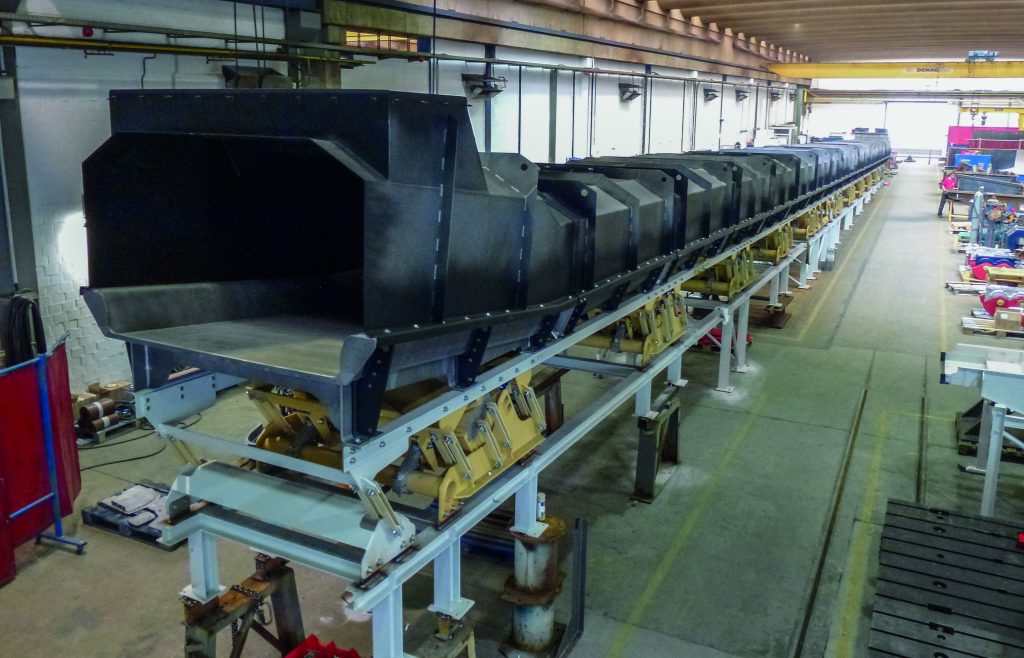FOUNDRY & STEEL INDUSTRY
JOEST Casting cooler

For a foundry in Asia JOEST manufactured a casting cooler with a width of 1,6 m and a total length of 45 m. The machine is used for cooling of automotive casting parts from 600°C to approx. 80°C with a capacity 160 parts per hour.
The conveying principle of this machine is based on a low-frequency resonance conveyor, operating close to resonance vibrating motion. Therefore the entire machine with a total weight of 50 t can be operated with 15 kw motor and is very energy efficient.
The cooling principle is based on a convective heat exchange between the media cast and air in counter flow, which has the highest cooling efficiency.
The JOEST casting cooler has a unique technology and design which reduces the vibration transmitted into the foundation and floor to almost zero.
For the transport and easier installation the cooler had to be split into several sections.
JOEST has proven again the experience with one of the largest casting coolers ever manufactured in company history.
Weitere Beiträge
As part of the JOEST group, MOGENSEN has been a trusted provider of high-performance screening and sorting technologies for many years. The new website now showcases this expertise more clearly and with a modern touch.
On International Women’s Day, we celebrated the great women in our company who have made a significant contribution every day with their commitment, expertise and passion. Their efforts have been a driving force behind our success and an inspiration to us all.
JOEST South Africa was commissioned to manufacture and supply replacement vibrating feeders for a critical power generation facility. The new units are designed to replace equipment that had been in operation for over 20 years, ensuring the continued reliability and efficiency of the plant.
MOGENSEN joins China’s food security project as an official supplier, supporting the nation’s plans to strengthen domestic grain production capabilities. The appointment by COFCO, China’s largest state-owned agricultural company, includes the deployment of multiple precision screening systems for processing rice, wheat and soybeans, among other grains. This long-term initiative is in line with China’s new food security law, which went into effect on June 1, 2024.





